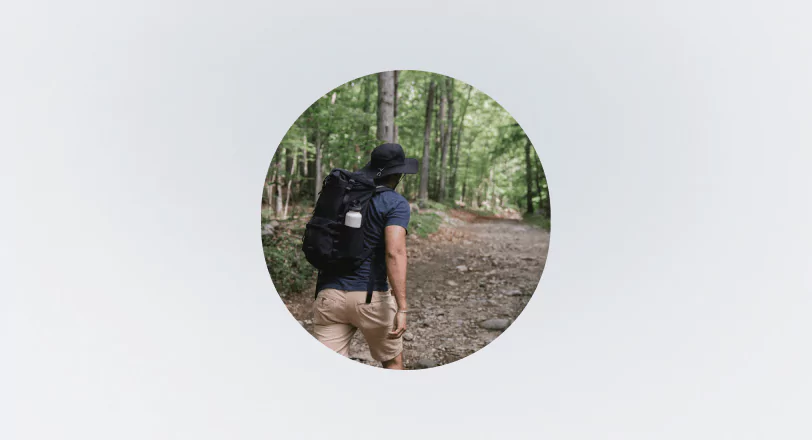You’re passionate about creating unforgettable tours — not getting tangled up in paperwork. But lately, you’ve heard whispers about licensing problems.
Maybe a friend mentioned a tour company getting hit with a huge fine. Maybe you stumbled across a warning online.
Either way, now you’re wondering: Am I missing something important? Could my business be at risk without me even knowing it?
You’re not alone. Whether you’re just starting out or you’ve been running tours for years, licensing rules can feel confusing, frustrating, and, frankly, overwhelming.
Every country, every region, sometimes even every city seems to have its own set of requirements. And missing just one small detail can cause serious problems — from hefty fines to having your business shut down altogether.
Here’s the good news: protecting yourself doesn’t have to be complicated. You just need to know what to watch for, what steps to take, and how to cover your bases without getting lost in legal jargon.
In this article, you’ll find out exactly what licensing conflicts you need to be aware of as a tour operator, why they matter, and what you can do to avoid disaster — so you can focus on what you do best: delivering incredible experiences.
Why Licensing Matters More Than You Think

If you're like most tour operators, your focus is usually where it should be — on creating unforgettable experiences, keeping your guests happy, and finding new ways to grow your business.
Chances are, sorting out licenses and paperwork isn’t at the top of your "things I love about my job" list. Honestly, who gets excited about red tape?
But here’s the thing: having the right licenses isn’t just about ticking a box or following a rule because someone said you have to.
It’s about protecting everything you’ve worked so hard to build. It’s about keeping your business safe, legal, and ready to grow without unexpected roadblocks.
Think of it like building a house. You wouldn’t start decorating before making sure the foundation is strong, right? If you did, a single crack could cause the whole structure to collapse.
Licensing works the same way. It’s the solid base that holds up everything else. If you miss a requirement — even something that seems small — it can lead to major headaches down the line.
We’re talking fines, canceled tours, lost bookings, damaged reputation, and in some cases, being forced to shut down temporarily.
And here's the kicker: the bigger and more successful your business becomes, the bigger the risks get if you haven’t sorted your licensing properly.
What might have been a minor oversight when you were running small local tours can turn into a major legal issue once you start expanding into new cities, states, or countries.
The good news?
You don’t have to live in constant fear of making a mistake. Most licensing requirements are completely manageable — once you know what to look for.
Sometimes it's as simple as getting a basic transportation permit if you're moving guests from one location to another.
Other times, if you're operating inside protected national parks, heritage sites, or wildlife reserves, you might need a specific tourism operator’s license.
Knowing the rules early gives you two major advantages:
- You can plan ahead and avoid nasty surprises. No more scrambling to fix problems when you're already mid-season or knee-deep in bookings.
- You can build a professional reputation that customers, partners, and even local authorities trust. People feel more comfortable working with businesses that are clearly above board.
The bottom line is this: licensing isn’t about adding stress. It’s about giving you the freedom to run your tours confidently, knowing you’ve covered your bases.
The Common Licensing Conflicts Tour Operators Face

When it comes to licensing, most operators don’t run into trouble because they’re ignoring the rules — they run into trouble because they didn’t even know a rule existed in the first place.
Here are some of the most common licensing conflicts that catch operators off guard:
1. Transportation Licensing

If you’re moving guests from one place to another — even if it’s just a short shuttle to a hiking trail — you might need a special transportation permit.
In some places, driving guests without the right license can land you a hefty fine, even if you’re using a regular van or small bus.
Tip: Always check local regulations about transporting passengers, even if it seems informal.
2. Special Permits for Protected Areas

Running tours in national parks, wildlife reserves, or historic sites often requires extra permits. Authorities want to control the number of visitors and make sure the environment is protected, so you’ll need official permission to operate there.
Tip: Contact park or site management offices ahead of time to learn what’s required — permits can sometimes take weeks or months to approve.
3. Business Licenses in Each Location

It’s easy to assume that if you have a business license in your home city, you're covered everywhere you operate. Not always. Some cities or states require you to register locally if you’re running tours within their boundaries, even if your main business is based somewhere else.
Tip: If you’re expanding into new areas, check if you need to register there separately.
4. Tour Guide Certifications

In some regions, individual tour guides need certifications — especially for historical or cultural tours. Some places even have exams to make sure guides know the facts they’re sharing with tourists.
Tip: If you’re hiring local guides, make sure they’re properly certified to avoid penalties.
5. Insurance and Liability Requirements

While technically not a "license," many destinations require operators to have specific insurance coverage to operate legally — like public liability insurance. Without it, you might not be allowed to run tours at all.
Tip: Double-check what type of insurance is required where you operate, not just what you think is "enough."
How to Know Exactly What You Need

At this point, you might be wondering, “Okay, but how do I actually figure out what licenses I need for my tours?” Good news: you don’t have to guess — there’s a clear way to get answers.
Here’s how to approach it:
1. Start with Where You Operate

Licensing requirements can change dramatically based on location. Before you worry about anything else, make a list of every city, state, region, or country where you run tours.
Then, check the local government websites for each one. Look for information specifically for operators, tourism businesses, or transport services.
2. Understand What You’re Offering

What you do on your tours matters just as much as where you do it. For example, are you transporting people? Entering national parks?
Running adventure activities like rafting or zip-lining? Each of these may trigger different licensing needs.
3. Check If You Need Special Insurance

In many cases, authorities want to see proof of insurance — especially if you're dealing with transportation, outdoor adventures, or anything remotely risky.
Public liability insurance is a common requirement, and some areas may have minimum coverage amounts.
4. Talk to Other Operators (and Professionals)

Other local tour operators can be a goldmine of information — as long as they’re open to sharing. You can also reach out to professional associations, legal consultants, or licensing specialists who work in tourism.
A small investment in expert advice upfront can save you massive headaches later.
5. Keep a Licensing Checklist

Once you gather all your information, put it into a simple checklist. That way, every time you launch a new tour, expand into a new location, or change your offerings, you have a clear reference for what needs updating.
Simple Steps to Avoid Disaster

By now, you know that licensing isn't something you can ignore — but it also doesn’t have to be overwhelming. If you follow a few smart steps, you can stay ahead of problems and run your tours with total confidence.
Here’s a simple game plan:
1. Research Before You Launch

Before you offer any new tour or enter a new area, double-check the local licensing rules. Even if you’ve operated somewhere before, regulations can change without much notice.
Quick Win: Create a habit of checking licensing requirements during the planning phase, not after you've started promoting a new tour.
2. Keep Copies of Your Licenses Handy

Authorities may ask you to show proof of your licenses, permits, or insurance — especially during spot checks. Keep digital and physical copies organized and accessible.
Quick Win: Set up a folder on your phone or tablet with all key documents, so you’re never caught unprepared.
3. Build a Good Relationship with Local Authorities

Having a friendly relationship with local tourism offices or licensing departments can make a huge difference.
They’re more likely to give you a heads-up about changes or help you quickly fix small issues before they become big problems.
Quick Win: Introduce yourself when you start operating in a new area. A quick email or visit can open helpful doors.
4. Review Your Requirements Regularly

Laws and regulations change. What was fine two years ago might not be enough today. Make a habit of reviewing your licensing and insurance needs at least once a year — or anytime you make big changes to your tours.
Quick Win: Put a reminder on your calendar for a yearly “license check up” — just like you would with taxes or insurance.
5. Don't Be Afraid to Get Expert Help

If you’re feeling stuck or unsure about specific rules, hiring a consultant or legal advisor with tourism experience can save you serious time and money. What might take you weeks to figure out on your own could take a pro just a few hours.
Quick Win: Think of it as an investment in your business’s security — not just another expense.
Conclusion
Licensing might feel like a maze at first, but here’s the truth: once you know what to look for and put a simple system in place, it becomes just another part of running a professional, trusted tour business.
You don't have to know every law by heart or be a legal expert. You just need to stay curious, ask good questions, and be willing to double-check when something feels unclear.
That one extra step — even a quick phone call or email — can protect everything you've worked so hard to build.
Remember: licensing isn’t there to slow you down. It’s there to give you a solid foundation, so you can grow your tours, win trust, and create unforgettable experiences — all without worrying about what’s lurking around the corner.
The operators who stay informed and proactive are the ones who not only avoid disasters but also build businesses that last.
And you? You’re already on the right path.





